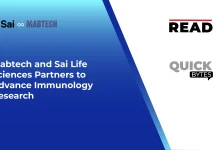Chroma Medicine, Inc., a genomic medicine company pioneering single-dose epigenetic editing therapeutics, presented new preclinical data demonstrating that a single administration of its epigenetic editor efficiently and durably lowered PCSK9 and cholesterol levels in non-human primates in a late-breaking oral presentation at the 2023 American Heart Association (AHA) Scientific Sessions, held November 11-13 in Philadelphia.
The data presented provide strong evidence for the potential of Chroma’s epigenetic editing platform to silence expression of PCSK9 in the liver and to induce a durable reduction in low-density lipoprotein-cholesterol (LDL-C) levels, a key factor for reducing risk of atherosclerotic cardiovascular disease (ASCVD), without cutting or nicking the DNA.
The PCSK9 gene actively promotes the degradation of LDL receptors, thereby reducing the ability of the liver to clear cholesterol from the blood. Genetic and pharmacologic reductions in PCSK9 levels have been shown to correlate with decreased cardiovascular events, making it an established target for prevention of ASCVD.
“We believe our epigenetic editing approach offers the potential for highly efficacious, specific, and durable silencing of PCSK9 in the liver while preserving genomic integrity and avoiding the inherent risks of editing approaches that cut or nick the DNA,” said Vic Myer, Ph.D., Chroma’s President and Chief Scientific Officer. “These results not only validate the power of our platform to effectively silence PCSK9 but also provide strong evidence of the resulting impact on key therapeutic biomarkers.”
The work details Chroma’s human PCSK9-targeting epigenetic editor, which was shown to efficiently and durably reduce PCSK9 levels in vivo through 10 months of follow up after a single administration in human transgenic mice. The data also show that the silencing was maintained in mice pre- and post- partial hepatectomy, the standard surgical model for induction of liver regeneration. In non-human primates, a significant reduction in circulating PCSK9 (80%) levels was achieved, resulting in a 58% reduction in LDL-C levels.
These studies also show a clearer link between Chroma’s PCSK9 epigenetic editor’s molecular action of CpG methylation and PCSK9 silencing. Application of the company’s epigenetic editor was found to be highly correlated with targeted CpG methylation at the PSCK9 locus in vivo and durable through tissue regeneration in the partial hepatectomy model.
“Developing single-dose therapies is a crucial step for disrupting the current treatment paradigm for lowering LDL-cholesterol and reducing the risk of serious cardiovascular disease,” said Catherine Stehman-Breen, M.D., Chroma’s Chief Executive Officer. “Data presented today signal the potential of our epigenetic editing platform to deliver precise and durable gene regulation by leveraging the cell’s natural mechanism, bringing us another step closer to delivering better therapies to patients.”
SOURCE : PRNewswire




